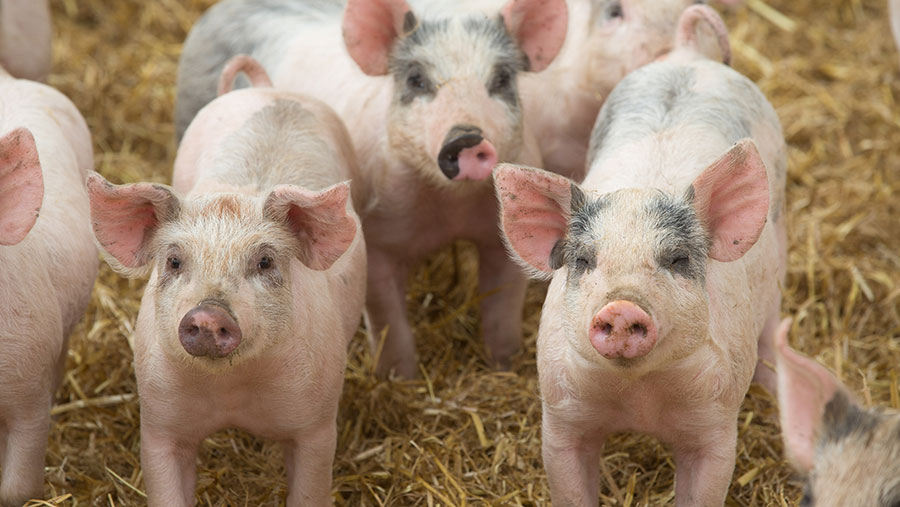US vaccine offers hope in fight against African swine fever
 © Tim Scrivener
© Tim Scrivener US scientists say they have potentially created a vaccine that offers full protection against African swine fever (ASF), a disease which has been devastating pig herds in China and eastern Europe.
The US Department of Agriculture (USDA) announced on Thursday (30 September) that researchers from its Agricultural Research Service have developed a new candidate vaccine that has been found to protect pigs against ASF.
The candidate vaccine – named ASFV-G-DI177l – has been shown to prevent and effectively protect both European- and Asian-bred pigs against the current circulating Asian strain of the virus.
See also: African swine fever threat: What farmers need to know
Studies of the candidate vaccine revealed that immunity occurred in approximately one-third of swine by the second week after vaccination, with full protection in all swine achieved by the fourth week.
ASF was first detected in 2007 in the Republic of Georgia and it causes virulent, deadly disease outbreaks in pigs and wild boar.
Since the original outbreak, ASF has swept across Asia and various countries in eastern and central Europe. China’s pig population has been crippled with losses of about 40% in herds since the disease was first detected in the country in 2018.
Virus creeping closer
No outbreaks of ASF have been confirmed either in the UK or the US. However, the disease is creeping closer to the UK.
The UK government currently deems there is “medium” risk of the virus being brought into the UK in animal products from affected countries, including from illegal imports.
And it has asked all farmers and members of the public travelling back from ASF-affected areas to take steps to prevent the spread of the disease to the UK, which could have a devastating effect on UK pig herds and pork production.
How you can help keep African swine fever out of the UK
Defra says everyone can help to stop the spread of ASF to the UK by taking the following steps:
- If you have visited ASF-affected areas in Europe, or elsewhere in the world, you must not bring any pork or pork products back to the UK
- Dispose of leftovers or food waste in secure bins that pigs or wildlife cannot access
- Farmers, the public and members of the food industry should practise high biosecurity standards, including never feeding catering waste, kitchen scraps or meat products to pigs, a practice that is illegal and can spread the disease.
ASF poses no risk to human health, as it only affects pigs and related animals. The virus is unable to transmit from pigs to humans.
US agriculture secretary Tom Vilsack has applauded the research and protection efforts under way at the USDA to prevent the global spread of ASF.
“USDA agencies are working together to protect US livestock from foreign and emerging animal diseases that could harm our economy and public health,” said Mr Vilsack.
Commercial work
US researchers will continue to determine the safety and efficacy of the vaccine under commercial production conditions and are working closely with their commercial partner, Navetco National Veterinary Joint Stock Company, located in Vietnam.
To date, the researchers have successfully engineered and patented five ASF experimental vaccines and fully executed seven licences with pharmaceutical companies to develop the vaccines.
The Agricultural Research Service continues to evaluate additional commercial partners to develop these vaccines.
“We are excited that our team’s research has resulted in promising vaccine candidates that are able to prevent and protect different swine breeds against the current ASF virus,” said a spokesman.
“Vaccine candidates could play an important role in controlling the ongoing outbreak threatening global swine health.”
